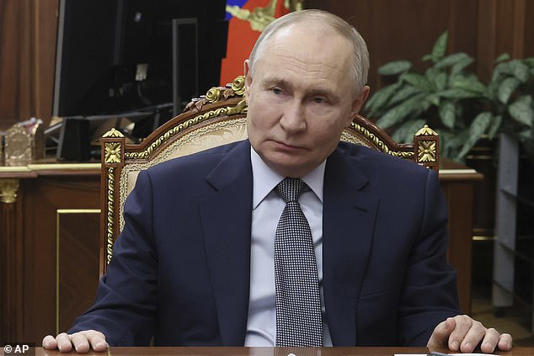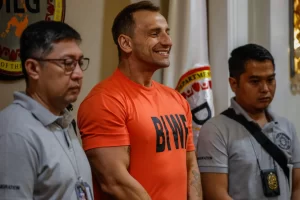Russia has indicated that it is seriously evaluating proposals from the United States regarding a possible end to the war in Ukraine. However, Moscow has stated that it “cannot accept” the current peace deal presented by President Donald Trump and has put forward additional demands.
A Russian diplomat, quoted by state media on Tuesday, emphasized that the US must address what Moscow sees as the underlying causes of the conflict.
“We take the models and solutions proposed by the Americans very seriously, but we can’t accept it all in its current form,” said Deputy Foreign Minister Sergei Ryabkov.
Ryabkov noted that Russia’s primary concern is missing from the US proposal. “As far as we can see, there is no place in them today for our main demand, namely to solve the problems related to the root causes of this conflict,” he stated, adding, “It is completely absent, and that must be overcome.”
On Sunday, Trump expressed his frustration with both Russian President Vladimir Putin and Ukrainian President Volodymyr Zelensky, reiterating his commitment to swiftly ending the war. While Trump claimed progress was being made in negotiations, he also suggested that further sanctions could be imposed to pressure Moscow.
Despite these discussions, Russia has declined a US proposal for an immediate 30-day cessation of hostilities. Additionally, efforts to establish a partial ceasefire in the Black Sea—intended to allow safer maritime shipments—have been hampered by conditions set by Kremlin negotiators.
According to a report by the Institute for the Study of War, Russia is strategically delaying an agreement on the Black Sea in order to “stall efforts toward a general ceasefire and extract additional concessions from the West.”
Zelensky, in a speech on Sunday, criticized Moscow’s approach to peace efforts. “Moscow blatantly makes a mockery of our partners’ efforts to advance a peace agenda,” he stated.
Putin has consistently rejected temporary ceasefires, arguing that they would merely provide Ukraine and its Western allies time to replenish their military supplies. Instead, he insists that Russia seeks a comprehensive resolution that ensures lasting stability.
Meanwhile, ongoing attacks by both sides persist, with Ukraine and Russia preparing for renewed military campaigns along the extensive frontline. Although Russia did not deploy Shahed drones overnight for the first time in months, Ukrainian officials stated that this development does not signal a change in Russian military strategy. “For now, this means nothing,” said Andrii Kovalenko of Ukraine’s Security Council.
In response to the continued conflict, Trump has suggested the possibility of implementing new sanctions on Russia. However, Kremlin spokesperson Dmitry Peskov warned that an imminent breakthrough in negotiations remains unlikely. “The issues that we are discussing in connection with the Ukrainian settlement are quite complex and they require a lot of additional efforts,” he remarked.
China, which has maintained close economic and diplomatic ties with Russia, has also weighed in on the peace efforts. During a visit to Moscow, Chinese Foreign Minister Wang Yi noted, “Certain results have been achieved” in Washington’s peace initiatives and acknowledged improvements in US-Russia relations under Trump. Wang further expressed Beijing’s support for “a fair, long-term, binding peace agreement acceptable to all parties involved.”
As diplomatic efforts continue, Russian and Ukrainian forces remain engaged in military confrontations, with both nations maneuvering for strategic advantage amid ongoing international negotiations.








